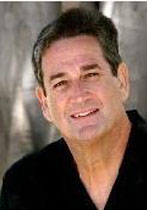By Rabbi Ben Kamin

SAN DIEGO — It is hardly worth the energy to mention how monumentally uninteresting is the “shocking” new book by Mimi Alford, Once Upon A Secret, which will now briefly draw attention from the sordid, disagreeable primary presidential primary campaign and its flailing bitterness.
I’m not planning to read or review it but the story is being forced upon me by the hyperventilation and cynicism of the media and the ravenous gossip culture now pervading the once serious news department at NBC.
There is no news in Ms. Alford’s self-purging little tome.
The irony is that back when Kennedy was alive and basically ignoring the human rights abuses being committed by the Southern states against black men, women, and children, it was NBC News that actually led the way into televising the atrocities of Birmingham, Ala. and Jackson, Miss. Even Kennedy, a truly visionary leader denied genuine greatness by cruel fate, finally was moved enough in June 1963 by the fire-hosing of peaceful black demonstrators to go on national television and suggest a Civil Rights Bill.
Had John F. Kennedy not been so horrifically executed in the open sunshine of Dealey Plaza in Dallas on November 22, 1963 and then served two terms as president, he likely would not have even recalled sweet, innocent Mimi. A brilliant man of both cosmic charisma and systemic nymphomania, he went through sexual escapades so innumerable and reckless that one can only fear that a bevy of women will now also come out of the rotting wood of this unnecessary chronicle.
Death and hagiography have blurred the lines of both facts and priorities. There is no news in Ms. Alford’s self-purging little tome; most powerful men—especially men who carry telegenic good likes such as John Kennedy and Bill Clinton—have been physically and psychologically unable to resist the easy access they’ve had to servile, star struck, needy women. That doesn’t make it right. But it also doesn’t make it news.
The fact remains that JFK, who inspired us as powerfully as George W. Bush embarrassed us, and who somehow does not come across historically like an alley-cat (read John Edwards), was uncommonly focused and clear-eyed when it came to the Cuban missile crisis, had the makings of a truly transcendent president. He did reenergize this land, created the Peace Corps, and he did love history, words, art, and music. He coped with chronic pain, a laundry list of health ailments, and was obsessed with his own mortality—which may partially explain, though does not justify his sickness with and for women.
But the great JFK did not have any such affinity for “Negroes”—as they were called then. As a senator, Kennedy appeased his influential Southern colleagues by voting against the proposed 1956 Civil Rights bill. Both the president and his brother Robert opposed the 1963 March on Washington, during which Martin Luther King, Jr. offered his “I Have A Dream” preachment. The Kennedys feared that any clear association with the Civil Rights Movement would cost them the South and the 1964 election.
History—and Ms. Alford’s memory—both need to be carefully examined, understood, and put into perspective.
*
Rabbi Kamin is a freelance writer based in San Diego. He may be contacted at ben.kamin@sdjewishworld.com